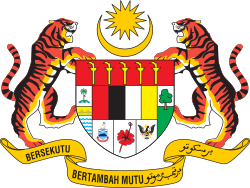
| Part of a series on |
| Conservatism in Malaysia |
|---|
 |
Conservatism in Malaysia is an ideology associated with Barisan Nasional and Malay-based political parties in general. "Right-wing" or "conservative" parties defend Ketuanan Melayu, or Malay political overlordship, and support the propagation of Islam. Economically, Malaysian conservatives support the continuation of affirmative action schemes, namely policies like the New Economic Policy.